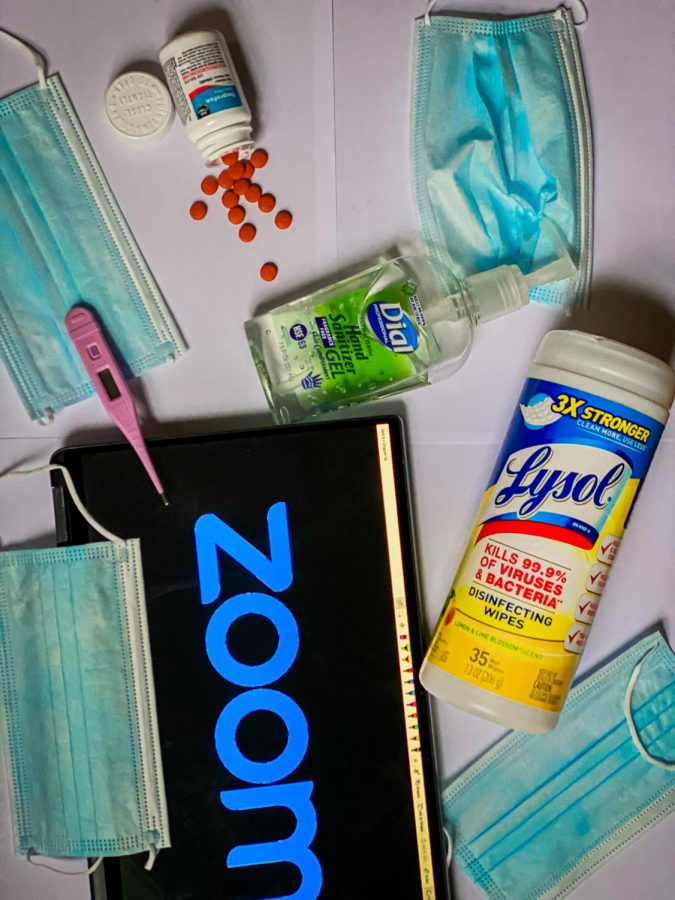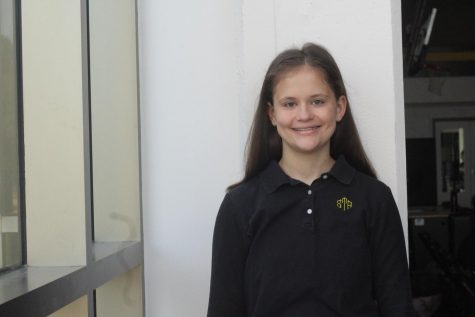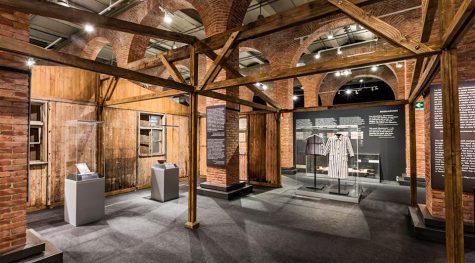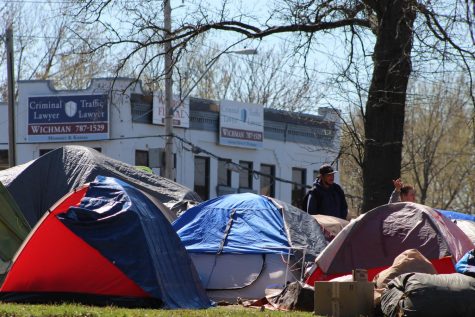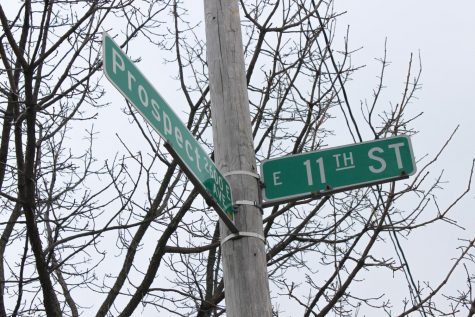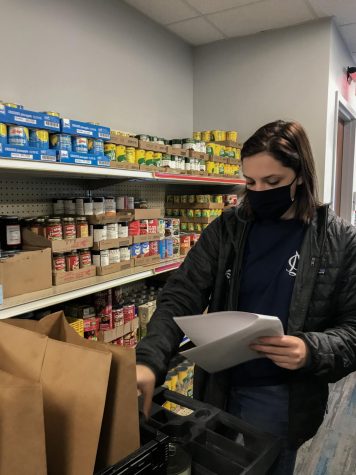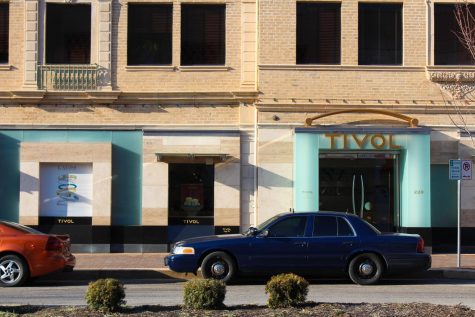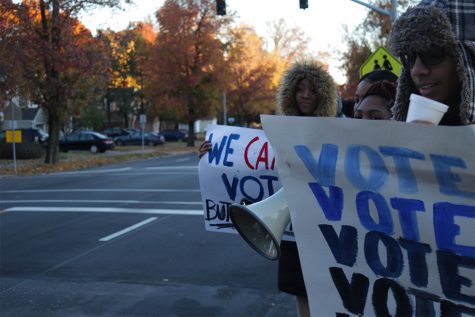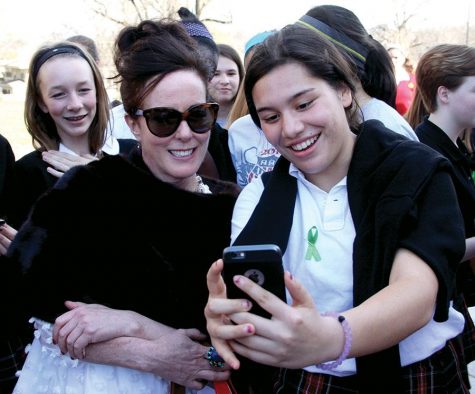“Light at the end of the tunnel”: students receive vaccine
Kansas and Missouri have begun vaccinating residents. Due to their jobs, some STA students have already been vaccinated.
The COVID-19 pandemic has hit the world hard with a continued increase in cases, but with the new vaccine things might change Jan. 30. The vaccine has already been distributed across the world and offers a new hope to the end of the pandemic. photo by Becca Speier
February 15, 2021
Throughout the month of January, local counties have begun vaccinating residents. Missouri is currently in Phase 1 of their distribution plan, which includes healthcare workers, long-term care facility staff and residents, paramedics and more.
Although most students will not be vaccinated until later phases, a handful of students at STA have already received the vaccine due to their current employment. Junior Audrey Flavin received the vaccine with her brother in the past month through Mission Chateau Senior Living —a retirement home in Kansas.
“I’m a food server, so they were like ‘We’re getting the vaccine — we’re vaccinating the residents,’” Flavin said. “And all the employees could get it if they wanted to.”
Overall, Flavin is not concerned about negative side effects of the vaccine and encourages others to be vaccinated when they have the opportunity to.
“I think everyone should get the vaccine if it’s available to them,” Flavin said. “Because I know some people that I worked with were skeptical, skeptical about getting it, but I think everyone should get it if it’s available to them, and all the residents received a vaccine.”
STA parent and registered nurse Gail Balling has also received the COVID-19 vaccine through her work. She works at an outpatient hospital and an inpatient hospital, but received the vaccine through the outpatient hospital. In her experience, the process of getting vaccinated was very similar to getting an influenza vaccine.
“We’re all required to get the influenza vaccination, so kind of that process is similar,” Balling said. “You have to sign a consent form. You have to say if you’ve ever had reactions to vaccines, if you’re allergic to different things, if you’re ill that day that you’re supposed to get [the vaccine]. Some of those things would rule you out of being able to receive it.”
Balling has received both doses of the vaccine. Her hospital established the order that workers would be vaccinated based on their interactions with COVID-19 patients.
“They did a triage system where people that were at highest risk would be offered the opportunity to be vaccinated first,” Balling said. “I don’t know of anywhere in town where it’s mandatory. It’s all still volunteer.”
When Balling received the vaccine, she first had to make an appointment time through her work by email. After receiving the vaccine, Balling and other patients were required to wait at the facility for 15 minutes to ensure that they did not have a negative reaction.
“In terms of how they rolled it out to their employees, and how smooth a process that’s been has really impressed me,” Balling said. “I’ve been in healthcare over 20 years, so I feel like sometimes I’m hard to impress. There are things that don’t go smoothly [during the pandemic], but I feel like this part of it has gone really smoothly in terms of figuring out who should go first, getting people through really efficiently.”
Wyandotte Vaccination Center volunteer Shelby Carrothers has been volunteering with vaccine distribution for the last month. According to Carrothers, the center, located in Kansas is entering Phase 2 of the vaccination plan. This includes vaccinating the elderly general public and critical infrastructure workers, like teachers and postal workers. Carrothers encourages others to volunteer if possible.
“There’s lots of volunteering opportunities,” Carrothers said. “The centers in low resource areas can always use extra help.”
According to Fox4 News, Mayor Quinton Lucas has concerns about Kansas City’s availability and dosage distribution. The main concern, however, is that the current logistics are allowing for waste of vaccinations. Jackson County currently asks all residents to fill out a survey, and then the participants will be contacted when officials are available.
“We use Moderna and Pfizer,” Carrothers said. “They both are deemed unusable hours after opening the vials. They cannot be stored overnight after the vial has been opened. At the end of the day, if there is leftover vaccine, they start allowing people from the next phase. At the end of one day, we had 30 doses left over. We called a list of older residents. Many couldn’t make it in time. We were grabbing people off the street. No doses are wasted.”
Carrothers has full trust in the vaccine and participated in a Johnson & Johnson vaccine trial last year. She encourages others to get vaccinated.
“Vaccines are one of the single greatest advancements in modern science,” Carrothers said. “When was the last time your friend was paralyzed due to polio? We are eradicating HPV and cervical cancer in women, with a vaccine. The anti-vax movement is a huge step in the wrong direction.”
Balling is hopeful that the vaccine will help end the pandemic. She is relieved to be vaccinated and hopes for the rest of her family to receive the vaccine in the near future.
“The day I got the first vaccine, I felt extremely hopeful,” Balling said. “Maybe there’s going to be a light at the end of the tunnel. It just was almost like a weight lifted off of you. It felt like we were finally making the correct steps forward in some way.”



